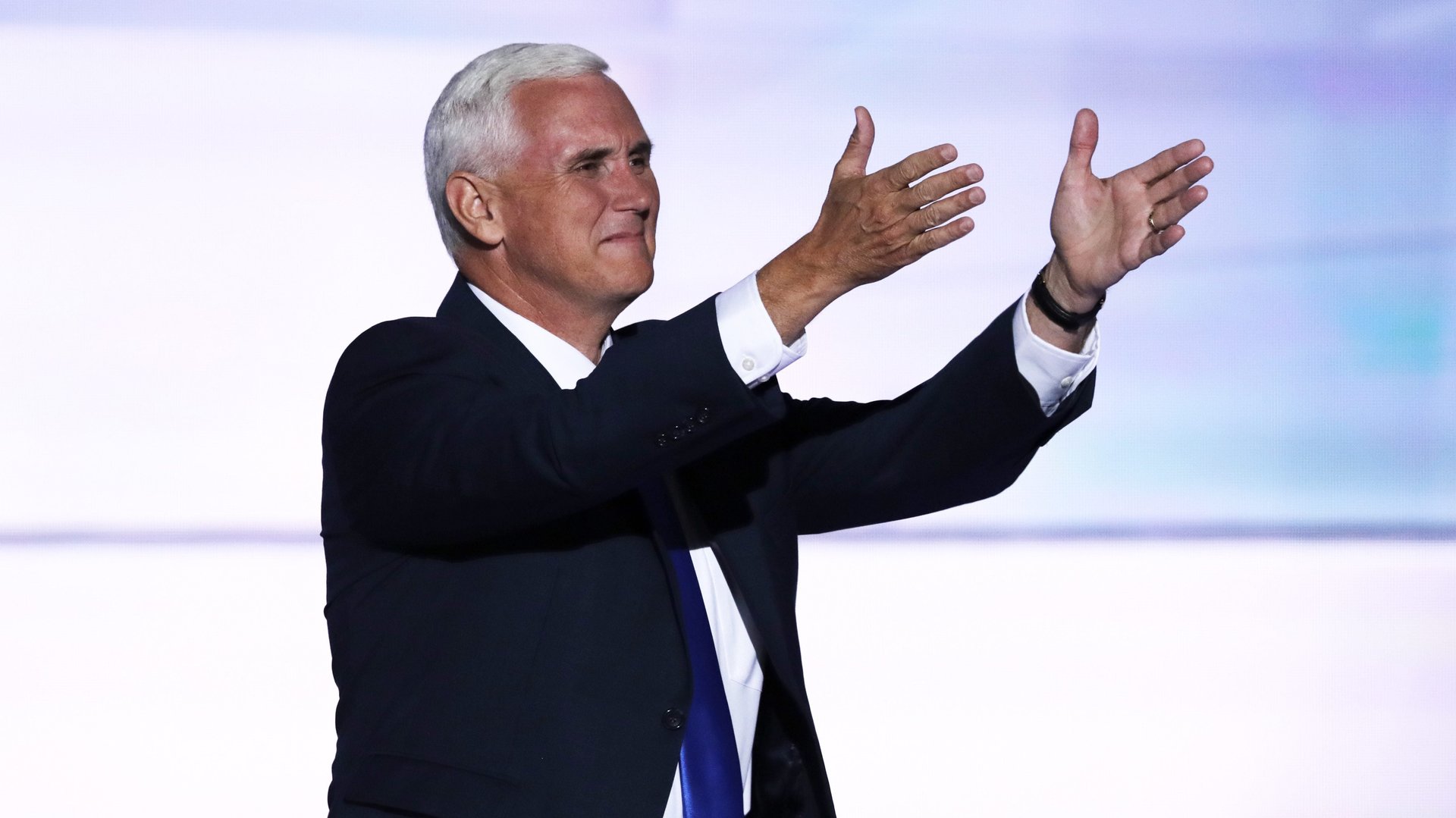After Ted Cruz’s betrayal, Donald Trump’s chances at presidential victory are in Mike Pence’s hands
Mike Pence accepted the Republican VP nod with self-deprecation and humility, confessing that most people watching probably didn’t know him.


Mike Pence accepted the Republican VP nod with self-deprecation and humility, confessing that most people watching probably didn’t know him.
But the simple reason the Indiana governor with the white hair is needed is that he is ”a christian, a conservative, and a Republican, in that order,” and Trump is not.
“Nobody will say that” of Trump, Richard Viguerie, the legendary conservative organizer, told Quartz at the convention. “Not even Trump will say that.”
Pence, however, will have to find a way.
Viguerie worked for conservative insurgent Barry Goldwater before building the conservative grassroots that helped put Ronald Reagan in the White House. Now an éminence grise and an alternate delegate from Virginia, he thinks Trump has an advantage if he can convince conservatives to work with him.
That may be a heavy lift. Texas Senator Ted Cruz, who Pence and Viguerie backed over Trump in the primary, declined to endorse Trump during a prime-time convention address, and in urging Republicans to vote their consciences, was seen by many Republicans as giving permission not to vote for Trump this year—and laying the groundwork for his own 2020 campaign.
“There’s a high percent of important conservatives that [Trump] hasn’t really closed the deal with,” Viguerie says. ”It’s not a question of whether they are going to vote for him or Hillary, it’s a question of how much they are going to work and how much energy they are going to put into it.”
That’s why is Pence so important to Trump. His presidential race comes down to a bet on Republican dislike of Hillary Clinton leading to high turnout among conservatives and especially white voters. At the moment, Clinton holds a significant lead, but not an insurmountable one. In a close race, small differences of turnout, fundraising and organization could be the difference.
“Trump dodged a fatal mistake last week, and that was with his VP choice,” Viguerie says. ”We were holding our breath on that, and I don’t know how he would have got the conservatives on board if he had selected someone like Chris Christie.”
Pence, however, is someone who has “walked with us” as a member of Congress. And while conservatives aren’t as pleased with his gubernatorial record, which included backing down in a fight over a harsh anti-LGTB law he backed and accepting common core educational standards, he also enacted one of the most restrictive anti-abortion laws and has a decades-long involvement with the conservative movement.
Many reports suggest that Trump was talked into the Pence appointment by the Republican establishment. It isn’t clear if he received the same offer Ohio Governor John Kasich reportedly received from Trump’s campaign, to be president in all but name. But his job will be to convince party stalwarts that if they go above and beyond for Trump, it will be his stamp on policy coming out of the White House.
But that’s not quite enough for conservative leaders who spoke with Quartz this week. They want to see him commit publicly to conservative cabinet members and political appointees, akin to the campaign’s decision to release a list of judges Trump might appoint.
But the downside to making such commitments is giving Clinton rhetorical ammunition to energize her own base—her campaign is already crowing about his hard-right record. But if this is to be a bet on party unity, Republicans are in for a Pence, in for a pound.